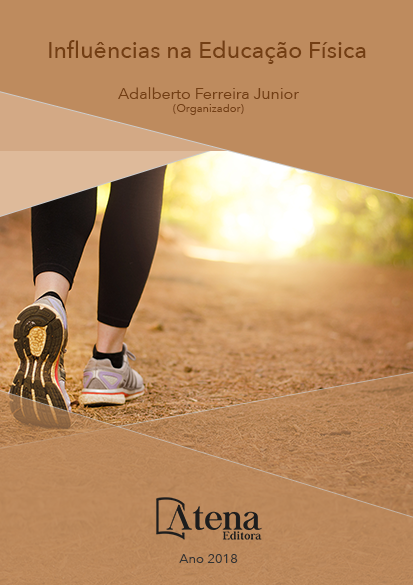
OS BENEFÍCIOS DA ATIVIDADE FÍSICA PARA CRIANÇAS COM DEFICIÊNCIA INTELECTUAL
As novas condições de vida
têm determinado, de forma predominante,
comportamentos sedentário, quanto à população
com deficiência intelectual essa situação se torna
alarmante uma vez que estudos com o nível de
atividade física dessa população é inferior ao
da população em geral. O objetivo do estudo é
investigar os benefícios da prática de atividade
física para crianças com deficiência intelectual
inserida no Centro de Atenção Psicossocial
Infanto-Juvenil (CAPSi). A amostra é composta
por 7 (sete) responsáveis das crianças com
déficit intelectual. A coleta de dados aconteceu
por meio de questionários aplicados aos pais
ou responsáveis pela criança com Deficiência
intelectual durante a ida ao CAPSi. Assim,
percebe-se que nos aspectos pessoais, as
principais barreiras para a prática de AF estão
relacionadas a eles se sentirem incapazes de
realizar algumas atividades físicas, tem timidez
e preguiça, também pelo medo de se machucar.
Com relação aos aspectos ambientais, houve
um predomínio na falta de preparação dos
profissionais de educação para atendê-los
e ausência de projetos sociais próximos de
casa. Quanto aos aspectos sociais, houve
uma significância na importância da prática de
atividade física para saúde da criança. Concluise
que algumas barreiras e facilitadores estão
ligados ao estímulo que as pessoas com déficit
intelectual recebem, pois podem despertar
o gosto pela atividade física, ainda se faz
necessário que os profissionais de Educação
Física tenham uma melhor compreensão a
cerca da deficiência intelectual e sua atuação
junto a esse público.
OS BENEFÍCIOS DA ATIVIDADE FÍSICA PARA CRIANÇAS COM DEFICIÊNCIA INTELECTUAL
-
DOI: 10.22533/at.ed.92518021231
-
Palavras-chave: Deficiência intelectual. Atividade Física. Saúde.
-
Keywords: Intellectual disability. Physical activity. Cheers.
-
Abstract:
The new conditions of life
have predominantly determined sedentary
behaviors, as for the population with intellectual
disability this situation becomes alarming
since studies with the level of physical activity
of this population is lower than the population
in general. The objective of the study is to
investigate the benefits of physical activity
practice for children with intellectual disabilities
enrolled in the Child and Youth Psychosocial
Care Center (CAPSi). The sample is made up of
7 (seven) persons responsible for children with
intellectual deficit. The data collection was done
through questionnaires applied to the parents
or guardians of the child with intellectual disability during the visit to CAPSi. Thus, it
is perceived that in the personal aspects, the main barriers to the practice of PA are
related to them if they feel incapable of performing some physical activities; they are shy
and lazy, also because of the fear of being hurt. With regard to environmental aspects,
there was predominance in the lack of preparation of the education professionals
to attend them and the absence of social projects close to home. Regarding social
aspects, there was significance in the importance of the practice of physical activity for
the health of the child. It is concluded that some barriers and facilitators are linked to
the stimulus that people with intellectual deficit receive, since they can arouse the taste
for physical activity, it is still necessary that Physical Education professionals have a
better understanding about intellectual disability and its with this public.
-
Número de páginas: 15
- Alana Simões Bezerra


